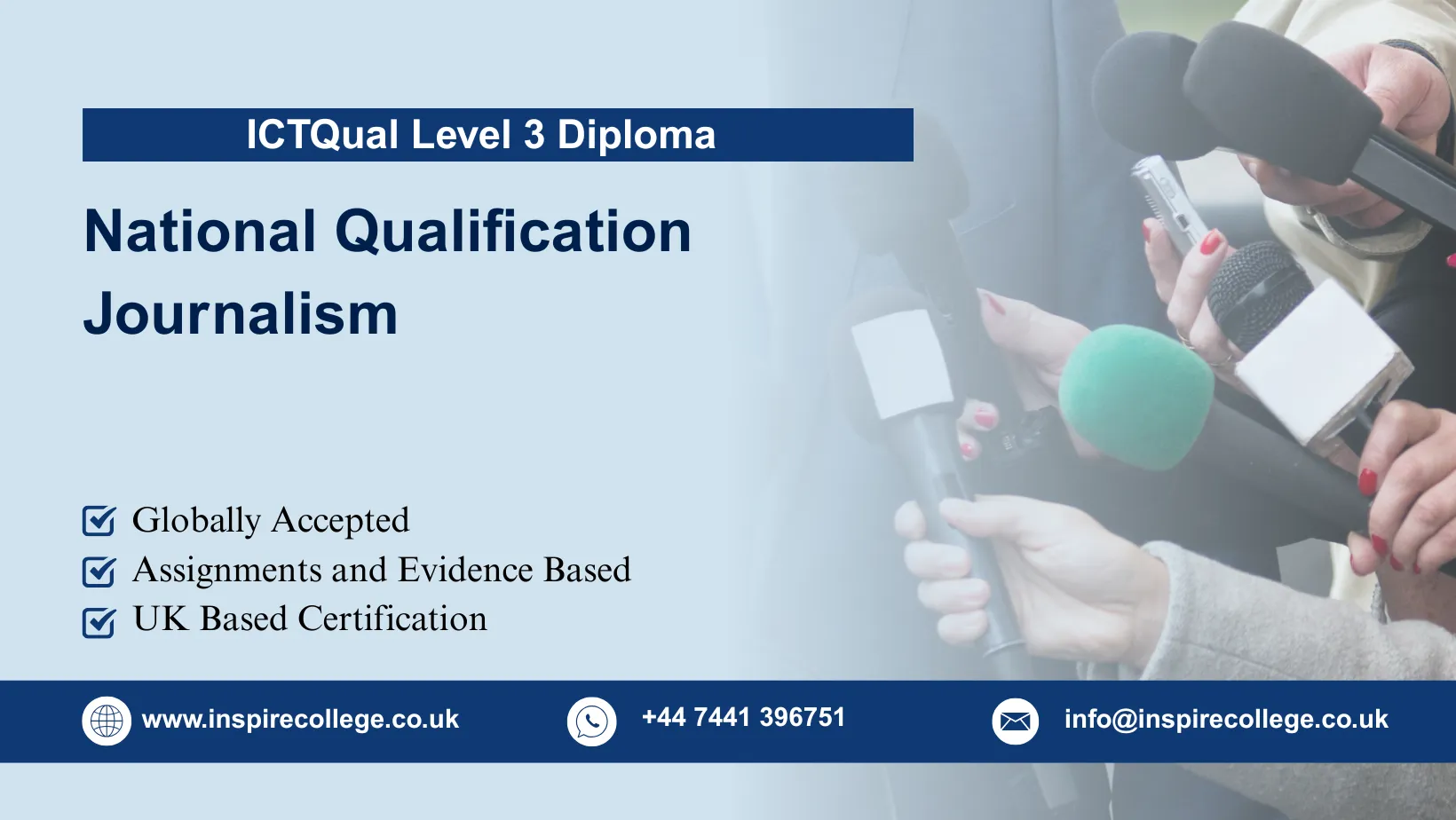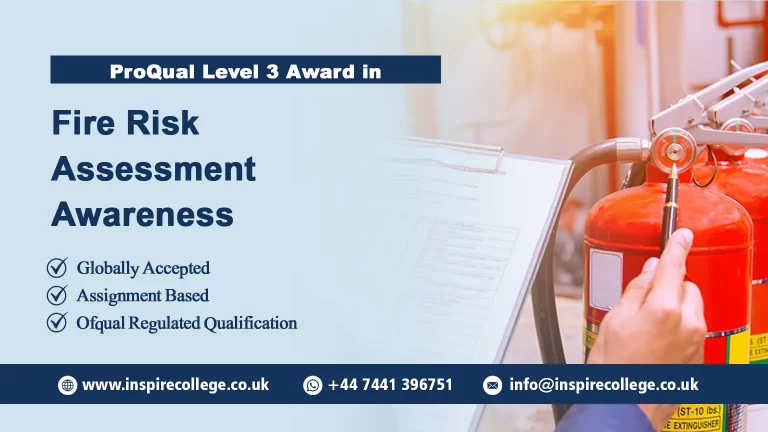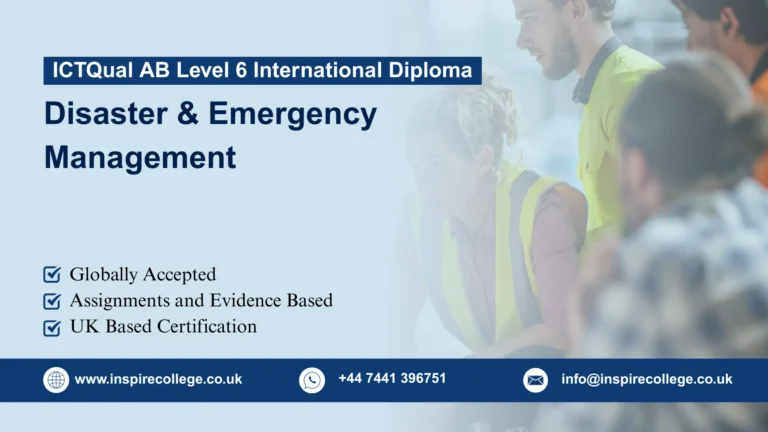
ICTQual Level 3 Diploma in National Qualification Journalism
The ICTQual Level 3 Diploma in National Qualification Journalism is a globally recognised programme designed to build a strong foundation in modern journalism. It is ideal for individuals entering the media industry or professionals seeking to strengthen their skills and advance their careers. This qualification provides learners with the core competencies required to excel in today’s fast-paced media environment, blending practical training with critical industry insights.
Throughout this 30-credit-hour diploma, learners will develop proficiency in news writing, investigative journalism, media law, ethics, and digital storytelling. The programme integrates both traditional and digital journalism practices, preparing learners to adapt seamlessly to emerging platforms and technologies. Through practical exercises and real-world projects, participants learn to produce factual, creative, and engaging content aligned with global journalistic standards.
In addition to technical skills, learners gain expertise in effective communication, ethical decision-making, and multimedia production, enhancing their professional credibility and employability. Graduates can pursue diverse roles such as reporters, media correspondents, content writers, editors, or digital media specialists across print, broadcast, and online platforms.
Key benefits of the programme include a comprehensive understanding of journalism principles, strong analytical and critical thinking abilities, and the capability to create stories that inform, inspire, and influence audiences. Completing the ICTQual Level 3 Diploma in National Qualification Journalism offers not only a career-enhancing qualification but also a stepping stone toward higher-level studies and global media opportunities.
This learner-focused programme emphasises practical experience, global relevance, and professional growth, enabling participants to thrive in the ever-evolving world of journalism with confidence, creativity, and integrity.
- Age Requirement:
Learners should be 16 years of age or older at the time of enrolment. - Educational Background:
A minimum of a Level 2 qualification (or equivalent secondary education) is preferred. However, applicants with relevant experience or a strong interest in journalism may also be considered. - Work Experience:
No prior professional experience in journalism is required, but any experience in writing, blogging, media, or communication will be an advantage and help learners grasp concepts more effectively. - English Language Proficiency:
As the course is taught in English, learners must demonstrate an adequate level of English communication skills. This can be shown through:
- A Level 2 English qualification (or equivalent), or
- Evidence of work or study in an English-speaking environment.
These entry requirements are designed to be flexible and inclusive, ensuring that learners from diverse backgrounds can access the programme and build a solid foundation for a successful journalism career.
Mandatory Units
This qualification, the ICTQual Level 3 Diploma in National Qualification Journalism, consists of 6 mandatory units.
- Introduction to Journalism
- News Reporting and Writing
- Media Ethics and Law
- Digital and Multimedia Journalism
- Investigative Journalism
- Broadcast Journalism
Learning Outcomes for the ICTQual Level 3 Diploma in National Qualification Journalism:
Introduction to Journalism
- Understand the fundamental role of journalism in society and its impact on public opinion.
- Identify the different types of journalism, including print, broadcast, and digital media.
- Recognise the responsibilities and professional standards expected of journalists.
- Demonstrate awareness of global and local media landscapes.
- Explore the evolution of journalism and emerging trends in the industry.
- Develop basic research and information-gathering skills relevant to news reporting.
- Appreciate the significance of impartiality, accuracy, and accountability in journalism.
- Recognise potential career paths and opportunities within the field of journalism.
News Reporting and Writing
- Develop the ability to write clear, accurate, and engaging news stories.
- Apply different news structures, including the inverted pyramid and feature writing.
- Conduct effective interviews to gather reliable information.
- Demonstrate fact-checking and verification skills to ensure accuracy.
- Tailor writing styles for various platforms, including print, online, and broadcast.
- Create compelling headlines and leads that capture reader attention.
- Understand deadlines and time management in news production.
- Enhance storytelling skills to convey complex information concisely.
Media Ethics and Law
- Apply ethical principles and professional codes of conduct in journalism.
- Recognise legal constraints, including defamation, libel, and slander.
- Understand privacy laws and the protection of sensitive information.
- Identify ethical dilemmas and make informed decisions in reporting.
- Appreciate responsibilities towards vulnerable groups and communities.
- Analyse real-world case studies to understand ethical challenges in journalism.
- Recognise the impact of ethical journalism on public trust and credibility.
- Integrate ethical and legal considerations into everyday journalistic practice.
Digital and Multimedia Journalism
- Understand the role of digital media in modern journalism.
- Develop skills in multimedia content creation, including video, audio, and images.
- Use social media effectively for news reporting and audience engagement.
- Explore blogging, citizen journalism, and digital storytelling techniques.
- Utilise content management systems for publishing and distribution.
- Apply editing techniques to produce high-quality digital content.
- Understand the principles of engaging online audiences and building a digital presence.
- Analyse the advantages and challenges of digital platforms for journalists.
Investigative Journalism
- Develop advanced research and information-gathering skills.
- Identify and engage reliable sources while maintaining confidentiality.
- Apply fact verification and cross-checking techniques for accurate reporting.
- Produce in-depth investigative reports with clarity and precision.
- Assess risks and ethical considerations in investigative work.
- Understand the role of investigative journalism in promoting accountability.
- Analyse landmark investigative journalism case studies for practical learning.
- Strengthen critical thinking and analytical skills for uncovering complex stories.
Broadcast Journalism
- Understand the principles of radio and television journalism.
- Develop scriptwriting skills for broadcast media.
- Enhance presentation and voice modulation techniques for on-air delivery.
- Conduct interviews on camera and manage live reporting situations.
- Explore production basics for studio and field reporting.
- Apply technical knowledge of broadcasting equipment and software.
- Tailor content for different broadcast audiences and platforms.
- Integrate storytelling and visual communication techniques for effective broadcast journalism.
The ICTQual Level 3 Diploma in National Qualification Journalism is designed for individuals eager to begin or enhance their careers in the fast-paced world of journalism and media. It welcomes learners from diverse educational and professional backgrounds who are passionate about storytelling, communication, creativity, and current affairs. Whether you are just starting out or looking to refine your media skills, this course provides the foundation for professional success.
This course is ideal for:
- Aspiring Journalists – Those looking to enter the journalism industry and gain essential skills in news writing, reporting, media ethics, and digital storytelling. The course helps learners build confidence to work in print, broadcast, or online media.
- School Leavers and College Graduates – Individuals completing their secondary or college education who want to pursue a career in journalism or media studies. This qualification serves as a gateway to professional roles or higher-level academic pathways in communication and media.
- Content Creators, Bloggers, and Social Media Influencers – Learners who produce digital content and wish to enhance their credibility, journalistic accuracy, and storytelling abilities. The course equips them to create engaging and responsible content for online audiences.
- Freelance Writers and Media Enthusiasts – Independent writers who want to deepen their understanding of research, interviewing, editing, and publication standards. It helps them expand their creative reach across various media platforms.
- Professionals from Other Fields – Individuals from non-media backgrounds who are seeking a career transition into journalism or communication roles. The course provides the theoretical and practical foundation needed to succeed in media-related professions.
Overall, this programme is perfect for motivated, curious, and creative learners who want to communicate impactful stories, uphold journalistic integrity, and thrive in both traditional and digital media environments.
Register Now
FAQs for ICTQual Level 3 Diploma in National Qualification Journalism






